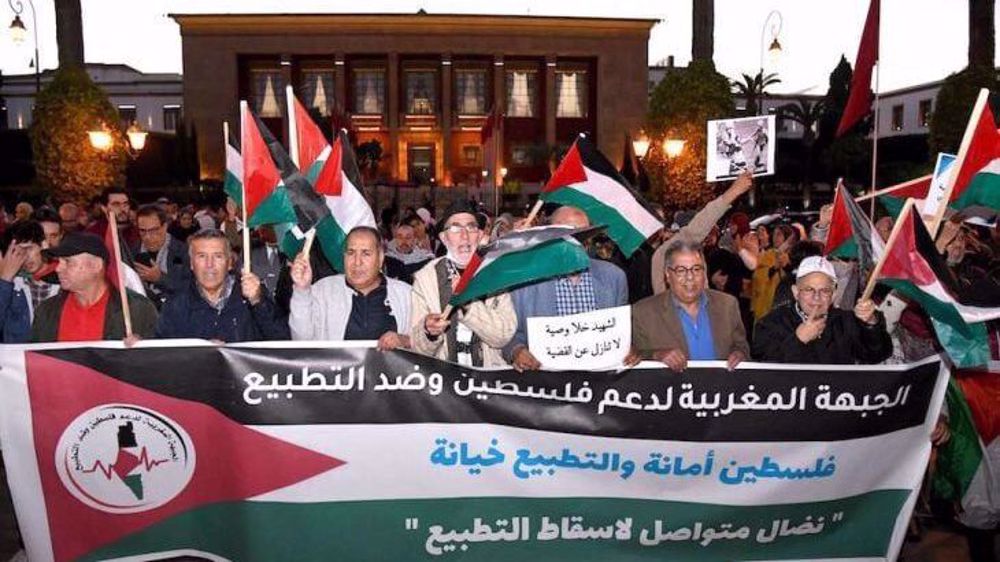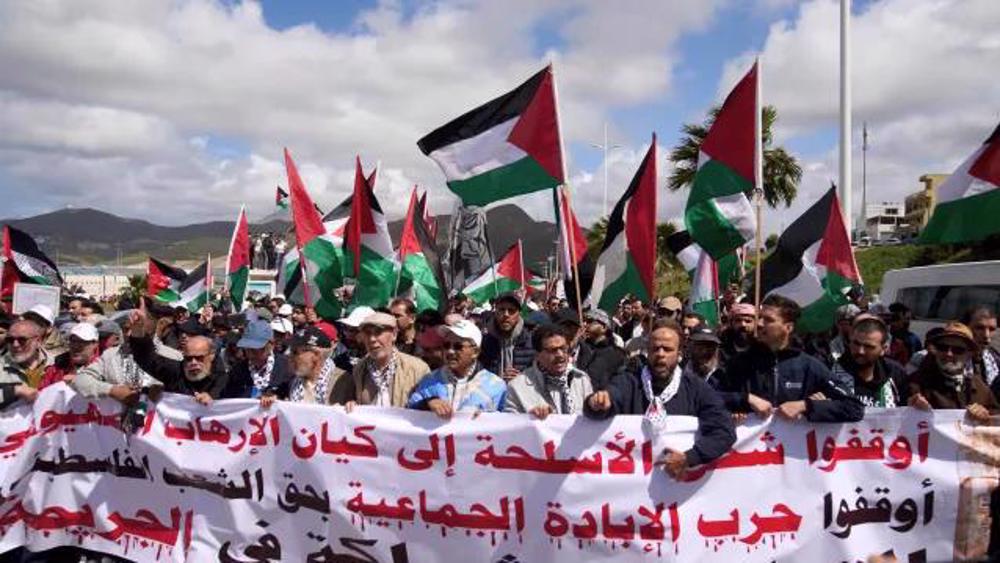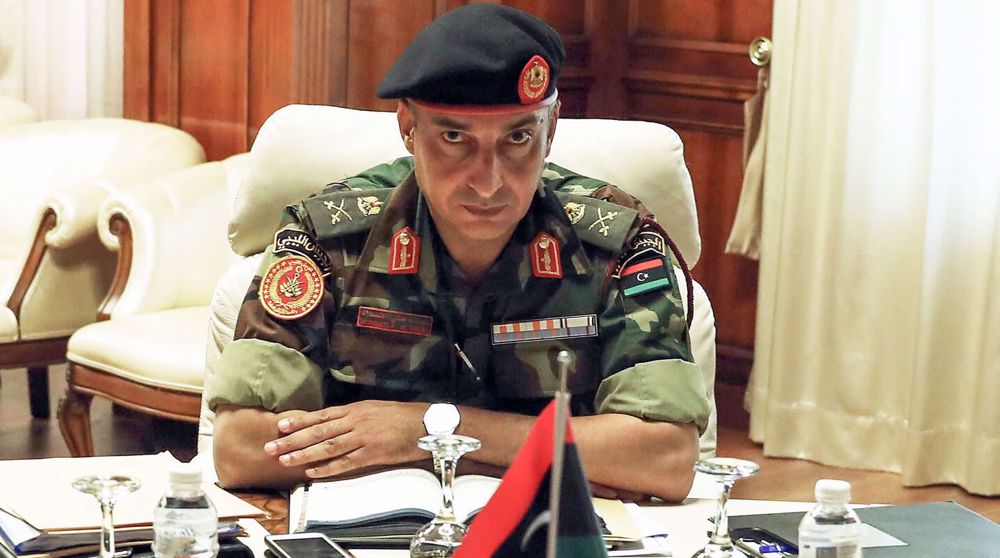Libya headed for conflict: Pro-rebel parl. invites Egypt intervention; Turkey gives ultimatum
Libya’s conflict seems to be headed for escalation, with the pro-rebel parliament “approving” Egyptian military intervention in the country, and Turkey conditioning an earlier ceasefire to the handing over of Sirte city and Jufra airbase to the government.
In a statement on Monday, the Libyan parliament based in the eastern city of Tobruk said, “The Egyptian armed forces have the right to intervene to protect Libyan and Egyptian national security if they see an imminent threat to the security of our two countries.”
Libya’s internationally-recognized government is based in the capital, Tripoli. The Tobruk-based parliament and the rebels fighting to protect it lay a rival claim to power and receive foreign backing primarily from Egypt and the United Arab Emirates (UAE).
Libyan government forces are supported by Turkey, and they have been able to push the rebels as far back in the country as the city of Sirte, on the Mediterranean coastline.
Egyptian President Abdel-Fatah el-Sisi said last month that the cities of Sirte and Jufra were a red line for Egypt and ordered the Egyptian military to be prepared for overseas missions.
Libya’s eastern-based parliament said in its statement that it welcomed the words of the Egyptian president.
Libyan government forces have tightened the noose on Sirte in the past several weeks, and a major battle for the city is imminent. The rebels have been reinforcing their ranks, too.
“We call for joint efforts between the two brotherly nations — Libya and Egypt — in order to defeat the occupier and maintain our common security and stability in our country and region,” the Libyan parliament said, in an apparent reference to Turkey, which has dispatched troops to Libya.
Meanwhile, the Egyptian military is making movements near the Libyan border. Last week, Egyptian armed forces carried out a military drill in the northwestern district of Qabr Gabis, 60 kilometers from the Libyan border.
Turkey says preparations underway for Sirte battle
Separately, Turkish Foreign Minister Mevlut Cavusoglu said that the Turkish and Libyan governments would agree to a ceasefire only if the rebels withdrew from Sirte and Jufra.
“We believe that a political solution is the only solution, but the necessary conditions must be met,” Cavusoglu said in an interview with public broadcaster TRT’s Turkish news channel on Monday.
Asked about a possible offensive against Sirte, Cavusoglu said preparations were underway for one but said diplomacy was first being tried to solve the matter.
“There are preparations for an operation but we are trying the (negotiating) table. If there is no withdrawal, there is already a military preparation, they (Libyan government forces) will show all determination here,” he said.
Cavusoglu also said separately that Turkey would start seismic research and drilling operations for natural resources in the part of the eastern Mediterranean covered by an agreement that was signed by Turkey and the Libyan government last year.
Turkey slams EU inaction
Cavusoglu has also accused the European Union (EU) of failing to take concerted action against the rebels in Libya.
“While putschist militias and mercenaries continue to be heavily reinforced, the EU’s Operation Irini in the Mediterranean (which has the stated aim of enforcing the arms embargo on Libya) is practically sanctioning the legitimate government,” he said in an article published in Politico.
Libya is subject to a United Nations (UN) arms embargo.
Europe should “stand up and cry foul in the face of the shocking discovery of mass graves in Tarhuna containing the bodies of victims allegedly killed by Haftar’s forces,” he said, referring to Khalifa Haftar, the commander of the Libyan rebels.
Cavusoglu also decried the blockade imposed by the rebel forces on Libyan oil terminals and fields.
“The blockade on Libya’s oil resources is depriving the Libyan people of a crucial resource,” he said.
The rebels started the blockade in January, when they managed to take control of Libya’s oil export terminals and fields in the east. Libya — which sits atop the largest oil reserves in Africa — has been forced to stop oil production as a result.
Libya’s national oil company recently reached an agreement with the rebels under which the blockade was to be lifted, but the rebels retracted that decision shortly afterwards. The national oil company said the United Arab Emirates (UAE) was behind that reversal.
The National Oil Corporation (NOC) “has been informed that the instructions to shut down production were given to [the rebels] by the United Arab Emirates,” the NOC said in a statement on Sunday, resuming force majeure on all oil exports.
Anwar Gargash, the UAE’s minister of state for foreign affairs, said in a tweet on Monday that safeguards should be placed to prevent proceeds from fueling further conflict in Libya.
He did not specify those safeguards, but the Libyan rebels have said proceeds from oil sales should be fairly distributed among all Libyan regions and not fund the sectors of the Tripoli government. Ahmad al-Mismari, a spokesman for the rebels, has called for the opening of a bank account in a foreign country for the distribution of oil revenue.
Libya first plunged into chaos in 2011, when a popular uprising backed by a NATO intervention led to the ouster of long-time dictator Muammar Gaddafi.
Israeli tank fires on Lebanese army during joint UN mission in south Lebanon: Report
Iran certain to deliver decisive response to Trump’s threats: Senior commander
Netanyahu skipped Davos amid arrest fears: Reports
VIDEO | West’s support for terror in Iran
VIDEO | Press TV's news headlines
More Europeans see Trump as 'enemy' than 'friend': Survey
Ukraine war talks begin in UAE as Russia repeats Donbas demand
Iran slams UNHRC session as illegitimate, says no submission to foreign pressure













 This makes it easy to access the Press TV website
This makes it easy to access the Press TV website